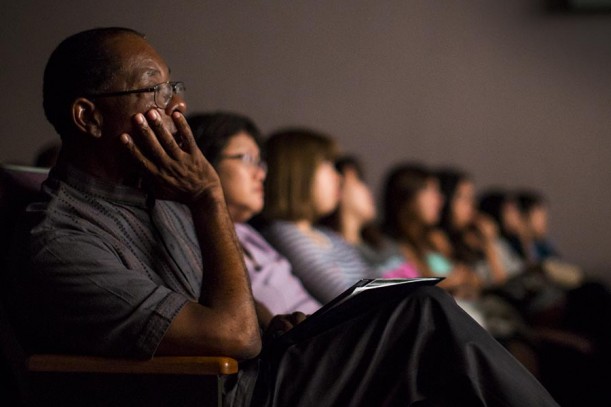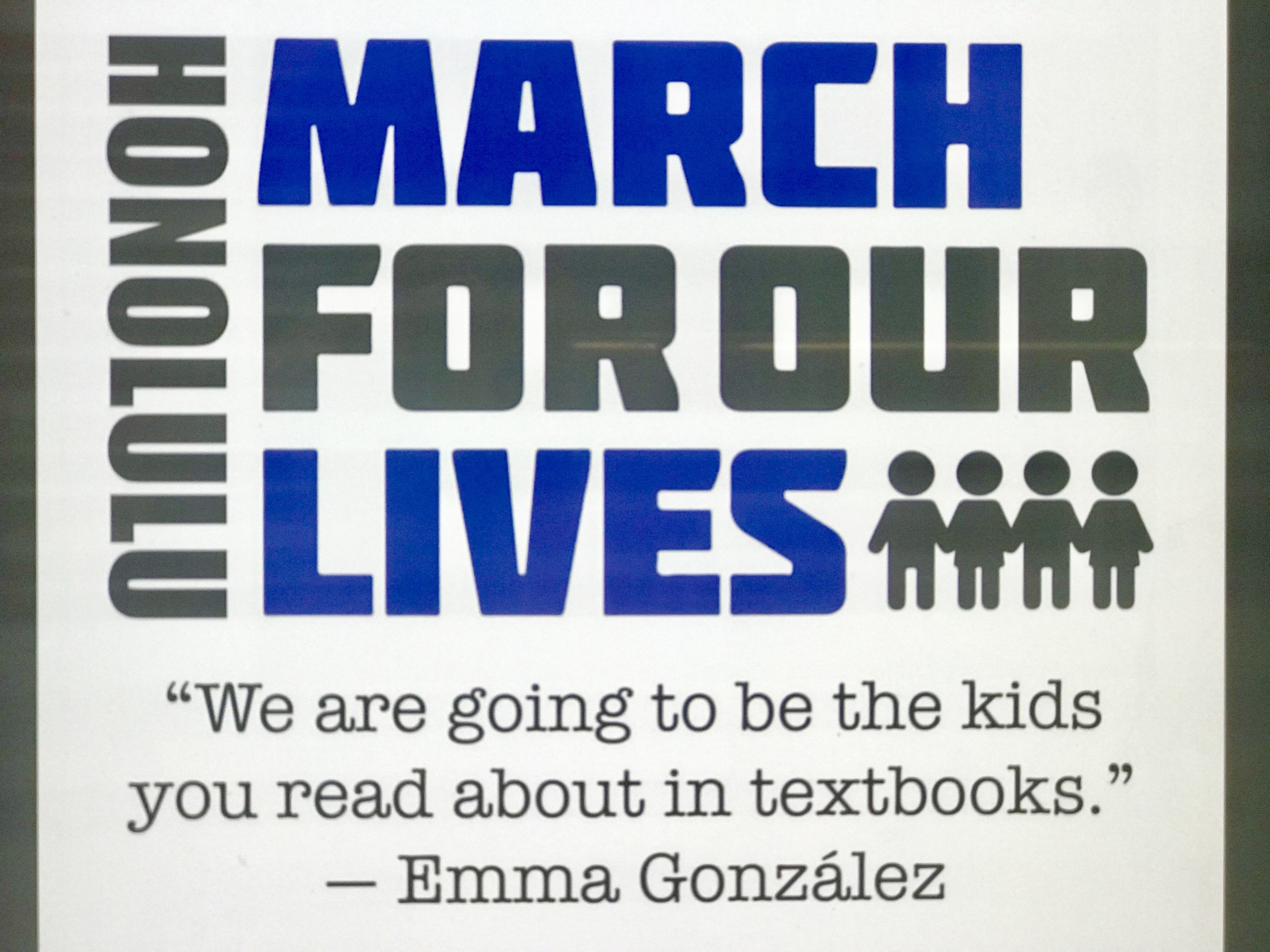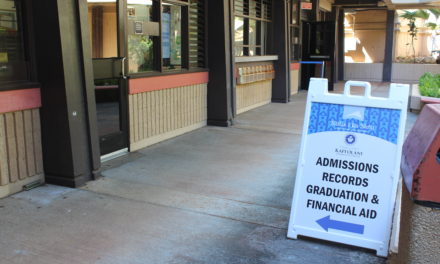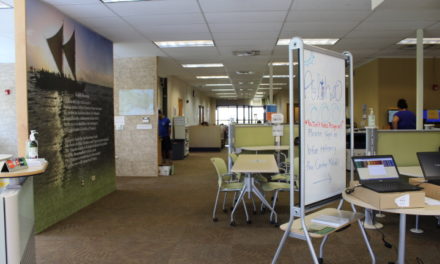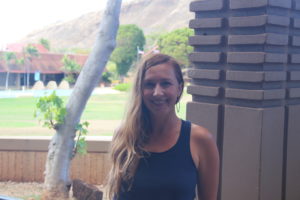BY CHRIS TAKAHASHI | STAFF WRITER
Leon Richards, the former KCC chancellor who was ousted after an overwhelming vote of no confidence from the school’s Senate Faculty in May, said he had “misgivings” about his removal as chancellor, but he wouldn’t go into it further during a sit-down interview with Kapi’o News in December.
Richards, who had been in the position since 2007, also received no-confidence votes by Student Congress, Native Hawaiian council, and the KCC staff council as reported by Kapi’o News in June, 2016.
“The administrative atmosphere I walked into was one of hostility and manipulation,” wrote Sharon Rowe, chair of the Department of Arts and Sciences, in an opinion piece published by Civil Beat on May 4. “I believe I have been lied to and used as a pawn in the administration’s broader agenda because under Chancellor Richards’ leadership, fundamental problems, which have been widely acknowledged by virtually all involved, could not be resolved.”
When Richards agreed to step down from his position (replaced on an interim basis by Louise Pagotto) last spring, it was determined he would stay on the school’s payroll in an advisory capacity until Dec. 1, 2016.
Kapiʻo News reached out to Richards in November, and he agreed to be interviewed in December. Though Richards declined to answer interview questions regarding the vote of no confidence and other factors leading up to his retirement, he did make clear that in his view, at this point in time, the incident and surrounding events are “water under the bridge.”
[One of the controversial decisions during Richards’ tenure included transforming Kapiʻo News from an independent student voice to a faculty-run news site with submissions provided from students from a journalism class. “On May 16 this student run campus publication will be departing Kapi‘olani Community College forever,” the Kapiʻo staff published on its Facebook page in 2014. “This decision was made by the school administration who wanted to move Kapi‘o in a new direction. In the future, the Kapi‘o is turning into a place to post outstanding student work, and other events as deemed important by the school. This way a writing/editing staff is no longer needed. All decisions are going to be made by KapCC faculty and staff — therefore we will no longer be a student publication.” Kapiʻo News returned as an independent newsite in September 2016.]
The following interview questions do not address the subject of his removal, per his request, but rather explore the breadth of his career at KCC and his role in the leadership transition period lasting through Dec. 1, 2016.
What would you say are some of your proudest achievements in your time as chancellor?
I think some of the prouder moments are in terms of the students, in terms of their ability to really be the best, to really achieve in whether it’s culinary or as gold medal winners. Also, in terms of our students in getting jobs and industry saying that your students are prepared. And, when the industries are willing to work with you and make donations, and when grants and donations start to come in.
As you depart, what is some unfinished business you’d like to see addressed on campus?
I think our unfinished business is in terms of some of our academic programs. We need to constantly make sure they are strengthened and that they do reflect what business and industry need, and that they are the best. So we need to constantly undergo re-evaluation, assessment, working with industry, and so forth. We also need to make sure we are serving our students and how do we know it. What indicators can we give to show? What are the students saying about the college? If they had a choice, would they come to KCC or go elsewhere? I think those are some of the unfinished business.
What have you been doing since May?
I’ve been working, at least, on some major assignments dealing with internationalization and globalization. How can we as a community college attract more international students? [At] KCC, the number of international students in comparison to the other campus [community colleges], there’s a wide gap. If you look at Asia and the Pacific, you’ll notice that the community college is an American creation. What is a community college? In terms of promoting ourselves as a community college we run up at times against a brick wall. Let’s take a step back. We are a community college but we are a community college within a university [system]. Why not promote ourselves as the University of Hawai‘i with multiple entrants into our university and it’s up to you for how you want to exit. Whether you exit with a one-year certificate of achievement, a two-year associate degree, or a bachelor’s, a master’s, or a doctorate.
What are your plans after the transition period is complete?
That has been asked many times [laughs]. I will not sit idly by. There are at least things out there and I have been approached for consulting work. I will accept those [opportunities] in which I think I can make a difference. Whether that involves helping to develop an academic program or proposal, but at this particular stage in terms of specifics, I think the universe is wide open. I believe I have a skillset and knowledge base that will benefit others.
[Editor’s note: This interview has been edited for length.]

